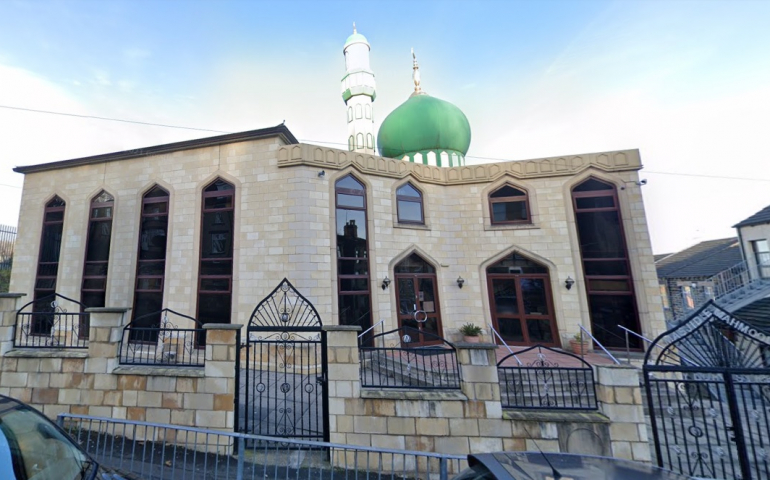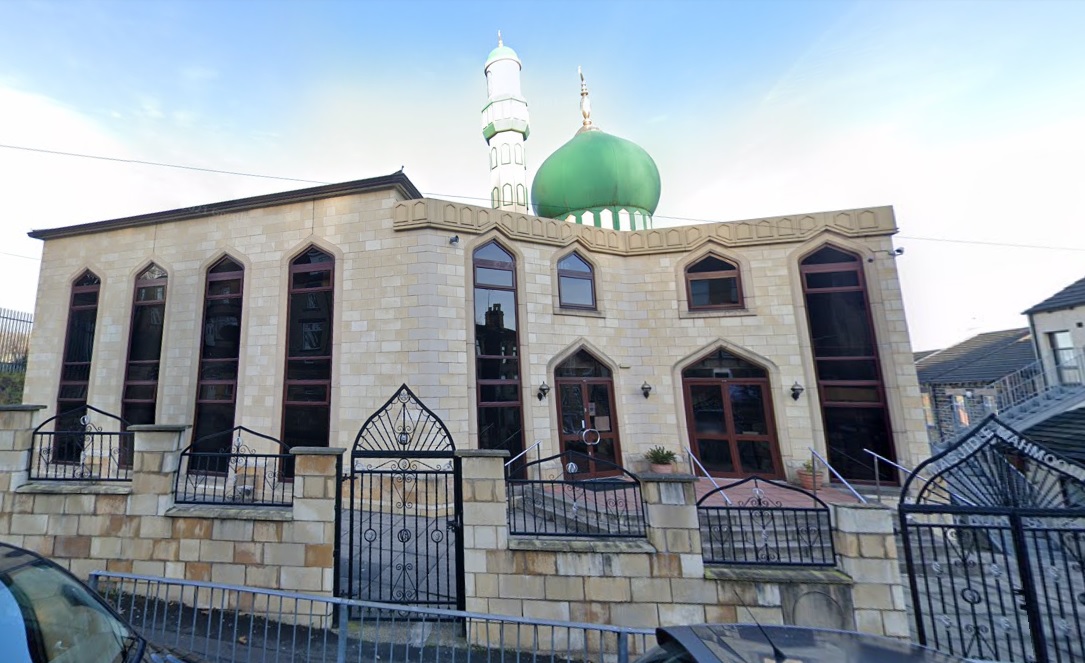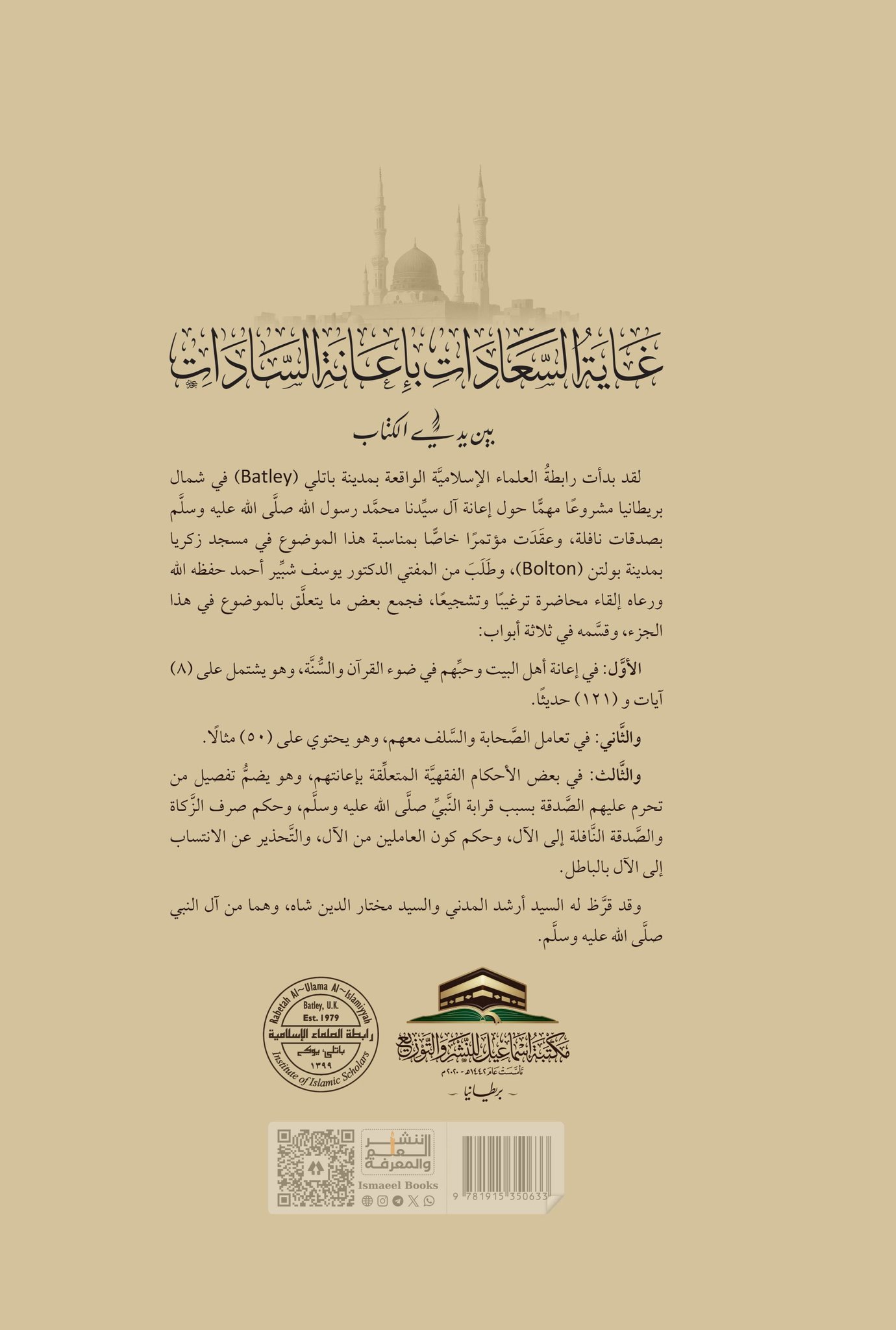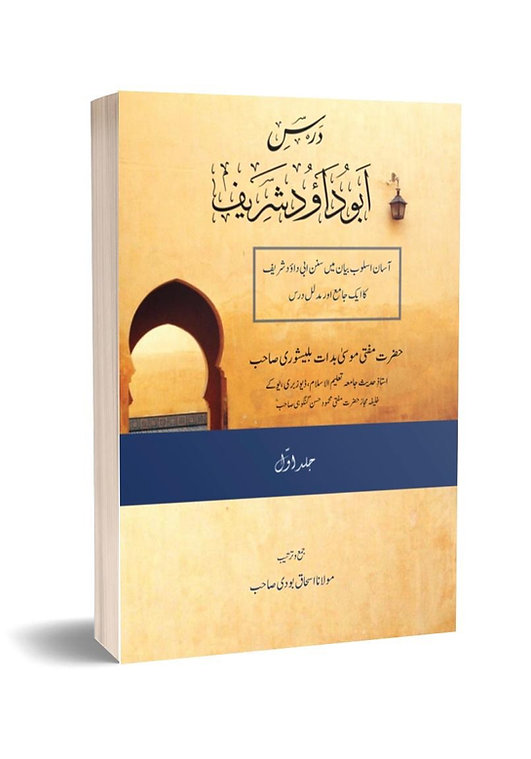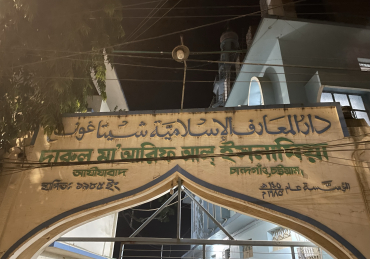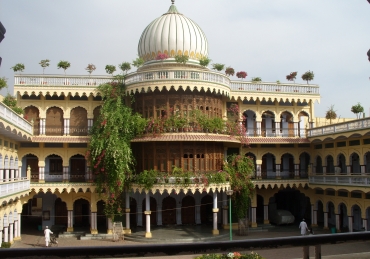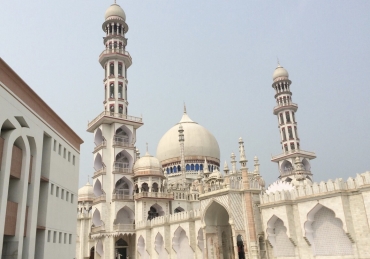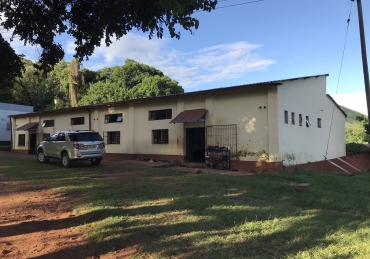Obituary: Shaykh al-Ḥadīth Mufti Mūsā Badāt Raḥimahullāh
(1372/1953 – 1447/2025)
In the Name of Allah, the Merciful, the Beneficent
Yesterday evening, we received the sad news of the demise of Shaykh al-Ḥadīth Ḥaḍrat Mufti Mūsā Badāt Raḥimahullāh of Batley, UK. This is a great loss for the Muslims of the UK and in particular the Muslims of Yorkshire. Mufti Ṣāḥib served the Dīn throughout his life and lived a life of simplicity. He was a beacon of humility and piety and served as a reminder of our pious predecessors. He was very affectionate towards me, which alongside his life-long service, has prompted me to pen this brief obituary.
Early life, education and teachers
Mufti Mūsā Aḥmad Badāt was born in Baleshwar, Surat district, Gujarat, India on Monday 18 Ramaḍān 1372 (1 June 1953). He acquired his early Islamic and school education in Baleshwar and thereafter enrolled at Madrasah Miftāḥ al-ʿUlūm in Taraj, Surat district, where he completed the memorisation of the Quran at the hands of Mawlānā Ibrāhīm Āmejī (d. 1439/2018), who later migrated to London.
Thereafter, Mufti Ṣāḥib started the ʿĀlim course at Madrasah Miftāḥ al-ʿUlūm and studied here for three years. He then transferred to Jāmiʿah Taʿlīm al-Dīn in Dabhel and studied here for two years, completing ʿArbī Chahārum (the fourth year). During this period, he was taught by Mufti Aḥmad Khānpūrī Ṣāḥib (b. 1365/1946) and Mufti Aḥmad Dewlā (b. 1365/1945), the current Principal of the seminary in Jambusar, Gujarat, India, and maintained a close relationship with both scholars.
In Shawwāl 1395 (1975), he continued his studies at the Falāh Dārayn seminary in Tadkeshwar, Gujarat and graduated from here in Shaʿbān 1397 (July 1977). Some of his notable teachers included the following:
- Mufti Aḥmad Baymāt ( 1424/2004) taught him Ṣaḥīḥ al-Bukhārī and Ṣaḥīḥ Muslim.
- Mawlānā Sher ʿAlī Afghānī Qandahārī (d. 1436/2015) taught him Sunan al-Tirmidhī.
- Mawlānā Abrār Aḥmad Dulyawī (d. 1415/1995) taught him Sunan Abī Dāwūd.
- Ḥaḍrat Mawlānā ʿAbdullāh Kāpodrawī Raḥimahullāh (d. 1439/2018) taught him Sharḥ Maʿānī al-Āthar.
- Mawlānā Sayyid Dhū al-Fiqār (d. 1431/2010) taught him Mishkāt al-Maṣābīḥ.
Iftāʾ
In 1398 (1978), he re-enrolled at Jāmiʿah Taʿlīm al-Dīn, Dabhel and completed the Iftāʾ course under Mufti Ismāʿīl Kacholwī (b. 1362/1943). Mufti Ismail Kacholwī is currently the Shaykh al-Ḥadīth of Jamia Hussainia Rander, Gujrat, India and a disciple of Shaykh al-Ḥadīth Mawlānā Muḥammad Zakariyyā Kāndhelwī (d. 1402/1982). He is the author of Fatāwā Dīniyyah and his primary residence is in Bradford, UK. May Allah bless him in his life and allow the Ummah and particularly the Muslims of the UK to benefit from him.
It was standard protocol at that time that anyone completing their Iftāʾ in Dabhel would have to go to Deoband and be examined by Mufti Maḥmūd Ḥasan Gangohī (d. 1417/1996). Mufti Mūsā Ṣāḥib thus travelled to Deoband and spent some time in the company of Mufti Maḥmūd Ḥasan who granted him permission to issue Fatwās without undertaking a formal examination. This strengthened his relationship with Mufti Maḥmūd Ḥasan Gangohi who later bestowed him with ijāzah in Taṣawwuf.
Teaching in India
Mufti Ṣāḥib then returned to Gujarat in 1399 (1979) and was appointed to teach in his alma mater, Madrasah Miftāḥ al-ʿUlūm in Taraj, where he taught the early years of the ʿĀlim class for the next four years. The books he taught here include Nūr al-Īḍāḥ, the famous Ḥanafī fiqh text.
Migration to Batley, UK
In 1983, he was invited to the UK and was appointed as Imam of Madrasah Zīnat al-Islām in Batley. At that time, Ṣalāh was being offered from a house. Mufti Ṣāḥib served as Imām and played a pivotal role in the establishment of the purpose-built Masjid on Taylor Street which was inaugurated in 1997, now known as Masjid Maḥmūdiyyah, named after Mufti Maḥmūd Ḥasan Gangohī.
Today, the Masjid is a vibrant centre of knowledge and offers various courses for children including Maktab, Ālim course and also a Sanatayn two-year course for teenagers. Within the ʿAlim course for professionals and adults, Mufti Ṣāḥib taught Ṣaḥīḥ al-Bukhārī for several years. Mufti Ṣāḥib thus served the community of Batley from 1983 until his demise. My respected father Mufti Shabbir Ahmad (b. 1376/1957) comments in this regard:
“The fact that Mufti Mūsā Ṣāḥib served in the same Masjid from 1983 until his demise is testament to his credentials. This is no easy task. Allah Almighty had blessed him with many qualities. Remaining silent was part of his nature. I first met him in 1978 or 1979 in Navsari, Gujarat, India whilst I was a student in Saharanpur. I took him to a local milk shop and we had something to drink together. After that, we met many times in the UK.”
Mufti Ṣāḥib also served as Amīr of Rabetah Al-Ulama Al-Islamiyyah (Institute of Islamic Scholars) of Batley for many years and also served as its patron until his demise, alongside Ḥaḍrat Mawlānā ʿAbdurraʾūf Lājpūrī Ṣāḥib. One of the most notable and blessed projects of the Rabetah is to support the Ahl al-Bayt in different parts of the world with non-Zakat funds, and it is a huge privilege for me that Rabetah has involved me in this project and also published my Arabic book Gāyat al-Saʿādat bi Iʿānat al-Sādāt in this regard, details of which will be announced soon. The reward of this book is dedicated to Mufti Ṣāḥib Raḥimahullāh and all the scholars who established and championed the Ahl al-Bayt support initiative.
Teaching at Dewsbury Markaz
When Mufti Ṣāḥib arrived to the UK, he was appointed by Ḥāfiẓ Patel Ṣāḥib (d. 1437/2016) to teach in the newly established Dārūl ʿUlūm at Dewsbury Markaz. Mufti Ṣāḥib thus started teaching here and continued doing so until his demise with a brief pause.
Initially, he taught various books of the early and middle years including Hidāyat al-Naḥw, Uṣūl al-Shāshī, Talkhīṣ al-Miftāḥ, Nukhbat al-Fikr, Ḥusāmī, Sharḥ Wiqāyah and Hidāyah. In 1990, he started teaching Mishkāt al-Maṣābīḥ, and in 1997, when the first Dawrat al-Ḥadīth year began, he started teaching Sunan Abī Dāwūd, which he continued to do so until 2019. Thereafter, after a brief pause due to medical reasons, he was appointed as the Shaykh al-Ḥadīth and taught Ṣaḥīḥ al-Bukhārī in recent years.
One of Mufti Mūsā Ṣāḥib’s students, my dear friend Mawlānā Afzal Patel Ṣāḥib, is a senior Ḥadīth lecturer in Darul Uloom Panama. He narrates:
“Ḥaḍrat taught us Hidāyat al-Naḥw and had an amazing way of teaching. We also studied some other books with him. We were also honoured to have studied Mishkāt al-Maṣābīḥ with Ḥaḍrat in full. Ḥaḍrat made us familiar with the commentaries of Mishkāt. He was very fond of Tanẓīm al-Ashtāt. Such was his attachment with the Prophet ﷺ that on one occasion he was in pursuit of a Ḥadīth and he could not find it, and he saw the Prophet ﷺ in a dream who directed him to a book in the library of Dewsbury Markaz. On one occasion, I fell ill and he personally came to visit me upstairs in my room. This was his affection. Once, he saw his teacher Mawlānā Abrār Ṣāḥib in a dream distributing milk. This was when we had completed Mishkāt al-Maṣābīḥ with him. The interpretation of this was that his students including those from abroad will spread knowledge. He visited Panama twice, once in 1997 to raise funds for Masjid Maḥmūdiyyah and the second time in 2012 or 2013 when Mufti Ismāʿīl Kacholwī Ṣāḥib could not attend to run the Khānqah, so he sent him in his place.”
Mufti Ṣāḥib had a lot of love for the Prophet ﷺ and immense respect for knowledge and Ḥadīths. His students mention that he would always teach whilst sat in the Tashahhud position.
Students
Mufti Ṣāḥib has students in the UK and also in other parts of the world. They include:
- Mawlānā Marghūb Aḥmad Lājpūrī, Imam of Masjid Bilal Dewsbury and prolific author.
- Mufti Muḥammad Khurshīd, senior teacher at Dewsbury Markaz.
- Mawlānā Isḥāq Boodi, Principal of Darul Uloom Leicester.
- Imam Qasim Rashid Ahmad, CEO of Al-Khair Foundation.
- Mawlānā Mohammed Omar Subedar, Co-Founder of Mathabah Institute, Canada.
- Mawlānā Muḥammad Motā, Imam of Jaame Masjid Batley and Amīr of Rabetah Al-Ulama Al-Islamiyyah, Batley.
- Mawlānā Muḥammad Farook Kazi, founder and Principal of Al-Ansaar Welfare and Education, Preston.
- Mawlānā Shams Ad Duha, founder of Ebrahim College, London.
- Mufti Javid Pathan, Headteacher of Preston Muslim Girls High School.
- Mawlānā Afzal Patel, senior teacher at Darul Uloom Panama.
- Mawlānā Yūsuf Sācha, senior teacher at Dewsbury Markaz.
- Mufti Abdul Hamid, CEO of Tauheedul Islam schools.
- Mufti Aasim Rashid, senior scholar of Canada and USA.
- Mufti Muḥammad Zubair Butt, founder of Institute of Islamic Jurisprudence, Bradford.
- Mufti Shahbaz Ahmed, Imam in Edinburgh.
- Mufti Sājid Badāt, senior teacher at Madina Academy Dewsbury and Imam of Masjid Quba, Batley.
- Mawlānā Muḥammad Sācha, teacher at Madina Academy Dewsbury.
- Mawlānā Zakariyyā Badāt, Imam in USA.
- Mawlānā Muḥammad Yāsir al-Ḥanafī, Imām in Aylesbury.
- Mawlānā Muḥammad Luqmān, founder of Abu Bakr Trust, Walsall.
- Mawlānā Munīr Vali, senior member of Blackburn Markaz.
- Mawlānā Ṭalḥah Hārūn, Imam at Blackburn Markaz.
- Mawlānā Ḥasīb Māyat, senior teacher at Darul Uloom Dawatul Iman Bradford.
- Mawlānā Sulaymān Rājā, Principal of Madrasah Maḥmūdiyyah Batley.
- Mawlānā Qamar, senior scholar of Norway.
Relationship with Mufti Maḥmūd Ḥasan Gangohī and story of Ijāzah
Mufti Mūsā Ṣāḥib states that he made Bayʿah with Shaykh al-Ḥadīth Mawlānā Muḥammad Zakariyyā Kāndhelwī (d. 1402/1982) and spent time with him during Iʿtikāf in Saharanpur in 1976. During this Iʿtikāf, he met with Mufti Maḥmūd Ḥasan Gangohī (d. 1417/1996) and became acquainted with him.
Thereafter, he spent time with Mufti Maḥmūd Ḥasan Gangohī during his visit to Deoband for the Iftāʾ examination as mentioned above and also spent time with him in Iʿtikāf in Chatta Masjid, Deoband in 1979 and also in 1988. After the demise of Shaykh al-Ḥadīth Mawlānā Muḥammad Zakariyyā, Mufti Mūṣā Ṣāḥib turned to Mufti Maḥmūd Ḥasan Ṣāḥib for spiritual guidance and corresponded with him until the latter’s demise. He also spent time with him in Ramadan 1412 (1992) in South Africa. It was during the Iʿtikāf of 1988 that on one morning, Mufti Maḥmūd Ḥasan Ṣāḥib granted him ijāzah in Taṣawwuf. Mufti Ṣāḥib then established a regular Majlis of Dhikr, initially at his house and thereafter at Masjid Maḥmūdiyyah. Many of his students and local people benefited from him.
Publications
Mufti Ṣāḥib authored several books. They include:
- Darse Abū Dāwūd Sharīf (volumes 1 and 2) – Urdu
- ʿAqīdah kī Ahmiyyat awr ʿIlm Kalām – Urdu
- The Significance of Creed – English
- Nikāḥ, Ṭalāq awr ʿIddat – Urdu, Gujarati and English
- Nisbat, Iḥsān awr Aʿmāl Qalbiyyah – Urdu and English
- Ḥaḍrat ʿĪsā ʿalayhissālam kā ʿAqīdah – Urdu
- Manāzil ʿIlm – Urdu
- Taqrīr Bukhārī Sharīf, final dars – Urdu
My dear colleague, Mawlānā Khalīl Aḥmad Kāzī has kindly shared the PDFs of a lecture and also a book of Mufti Ṣāḥib, which Mawlānā translated. They are attached here:
- An Introduction to the Science of Tasawwuf by Mufti Musa Badat
- Islamic Finance & Responsibility of Ulama by Mufti Musa Badat
Some personal memories
I do not remember exactly the first time I met or saw Mufti Mūsā Ṣāḥib. However, I remember as a young child accompanying my respected father to Batley and sitting in the same car as Ḥaḍrat Mawlānā Qārī Ṣiddīq Bāndawī Ṣāḥib (d. 1418/1997). This was in September 1996, as the driver of the car, my dear friend, Qārī Zubayr Badāt Ṣāḥib of Manchester later informed me. (Qārī Zubayr Ṣāḥib is currently not well, readers are requested to supplicate for his health). I was a young 7-year-old-child and remember Mufti Aḥmad Khānpūrī Ṣāḥib (b. 1365/1946) among other scholars and if I am not mistaken, Mufti Mūsā Ṣāḥib was also present.
Thereafter, over the past two decades, I have had the honour of meeting Mufti Ṣāḥib many times, at his home and also at programmes. He was extremely affectionate towards me. When I would meet him, he would always enquire about my respected father. Whenever he would find out that Mufti Aḥmad Khānpūrī Ṣāḥib is visiting the UK, he would phone me and request for a programme at Masjid Maḥmūdiyyah and if this was not possible, then at least for a visit to his house. We visited his house with Mufti Aḥmad Ṣāḥib several times. He would regularly stay in touch and go out of his way to host the whole convoy.
The quality that struck me the most was his humility and simplicity. He had no takalluf (pretentiousness). Recently, my dear friend, Qārī Saʿīd Makdā Ṣāḥib organised a programme at Madina Masjid regarding Masjid al-Aqsa and the ongoing situation in Palestine. The programme included the completion of the Quran and Ṣaḥīḥ al-Bukhārī and thereafter a talk by my dear classmate, Mufti Adam Esmail and myself. Although the talks were in English, Mufti Mūṣā Ṣāḥib (who as far as I know was not proficient in English) participated in the programme. This was on Saturday 4 November 2024. At the end of my talk, I requested Mufti Ṣāḥib to make the Duʿāʾ as he was the most senior scholar present and was the worthiest of this. Despite my insistence, Mufti Ṣāḥib refused, and insisted upon me. This was but his humility. Mufti Ṣāḥib had a lot of concern for the Ummah and for the oppressed. This is why he made a point of attending the programme. He also visited Masjid al-Aqsa a few years ago.
My most recent interaction with him was via his learned son, Mufti Sājid Ṣāḥib in relation to the ruling on working for arms companies that manufacture and supply arms to the Israeli regime. Mufti Ṣāḥib is among the scholars who endorsed the Fatwa which is available on the following link: www.islamicportal.co.uk/working-for-arms-companies-such-as-bae-and-elbit-systems. This was finalised at the end of April four months ago, and maybe the final Fatwā endorsed by Mufti Ṣāḥib.
Demise
Mufti Ṣāḥib was suffering from diabetes and some other health complications since a few years. His health deteriorated a few days ago and he was hospitalised. Ḥaḍrat Mawlānā ʿAbdurraʾūf Lājpūrī Ṣāḥib visited him earlier in the day in hospital. He narrates that he asked Mufti Ṣāḥib about where the etiquettes of visiting the sick are mentioned and he mentioned Ādāb al-Muʿāsharat of Ḥakīm al-Ummah Mawlānā Ashraf ʿAlī Thānawī (d. 1362/1943). Mufti Ṣāḥib also requested Mawlānā to supplicate that he is granted Ḥusn al-Khatimah (good end).
A few hours thereafter, Mufti Ṣāḥib passed away on Sunday 24 August 2025 – 1 Rabīʿ al-Awwal 1447) evening after Maghrib Ṣalāh. Thus, his birth and demise were on a Monday, similar to our beloved Prophet ﷺ. Further, according to one view, our beloved Prophet ﷺ passed away on 1 Rabīʿ al-Awwal. This is the view of Imam ʿUrwah ibn al-Zubayr (d. 94/712-3), Imam Ibn Shihāb al-Zuhrī (d. 124/742), Imam Musā ibn ʿUqbah (d. 141/758-9) and a group of scholars as detailed in one of our articles.
We pray to Allah Almighty to forgive Mufti Ṣāḥib’s shortcomings, accept his life-long service, and grant him an abode in Jannat al-Firdaws. May Allah preserve all of our institutes including Dewsbury Markaz and provide them with a good replacement.
Mufti Ṣāḥib’s ghusl was undertaken at Masjid Maḥmūdiyyah after ʿIshāʾ Ṣalāh by his family members and students. His Janāzah Ṣalāḥ took place today at 12.45pm in the playing fields behind Masjid Maḥmūdiyyah. Al-Ḥamdulillāḥ, we attended with my respected father, and there were scholars present from different parts of the country. Mawlānā Yūsuf Darwān Ṣāḥib delivered a talk before the Ṣalāḥ and Mufti Ismāʿīl Kacholwī (b. 1362/1943), Mufti Mūsā Ṣāḥib’s teacher, led the Ṣalāh. My estimate is that more than 7,000 people were present. Mufti Ṣāḥib was then laid to rest in Batley Cemetery, which is the resting place of many scholars and pious people. The final supplication at the grave was undertaken by Mawlānā ʿAbdurraʾūf Lājpūrī Ṣāḥib.
Mufti Ṣāḥib leaves behind his wife, four daughters and four sons, Mawlānā ʿAbdullāh, Mawlānā Hārūn, ʿĀbid Bhai, and Mufti Sājid who is a senior teacher of Ḥadīth at Madina Academy Dewsbury and Imam at Masjid Quba in Batley, as mentioned above. May Allah Almighty bless them in their knowledge and grant them all Ṣabr Jamīl. Āmīn.
Yusuf Shabbir
1 Rabīʿ al-Awwal 1447 / 25 August 2025

